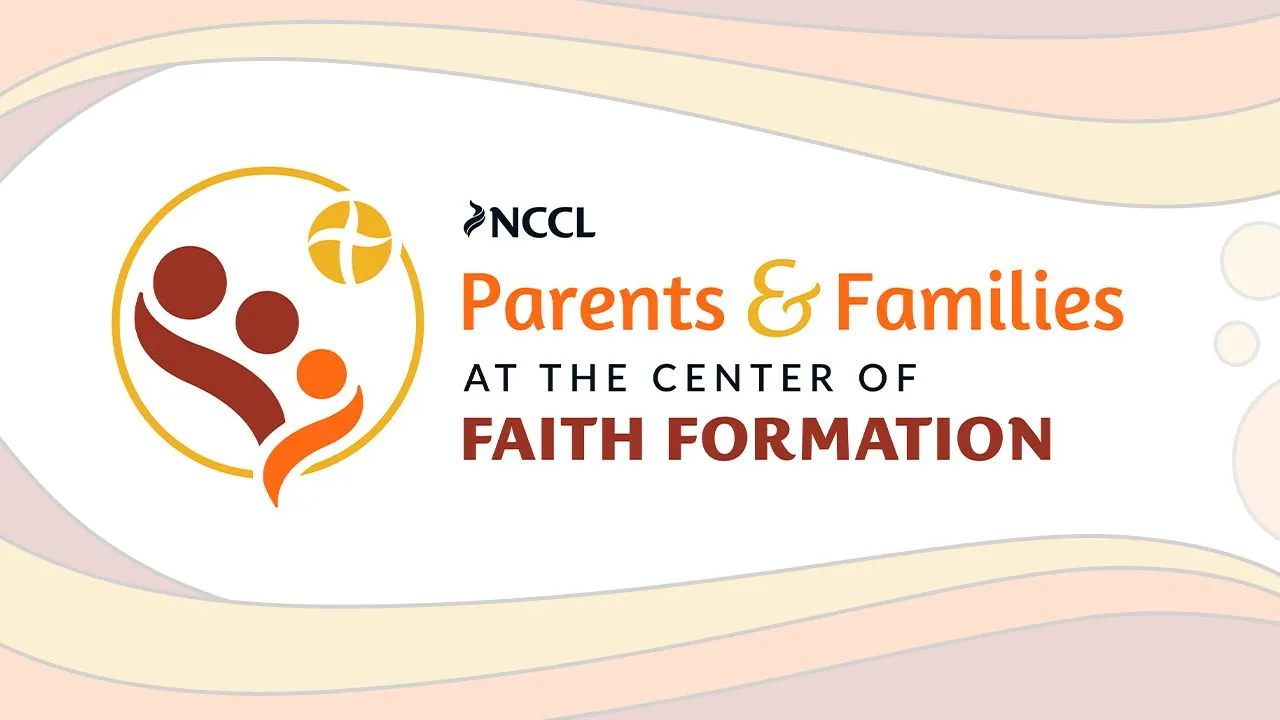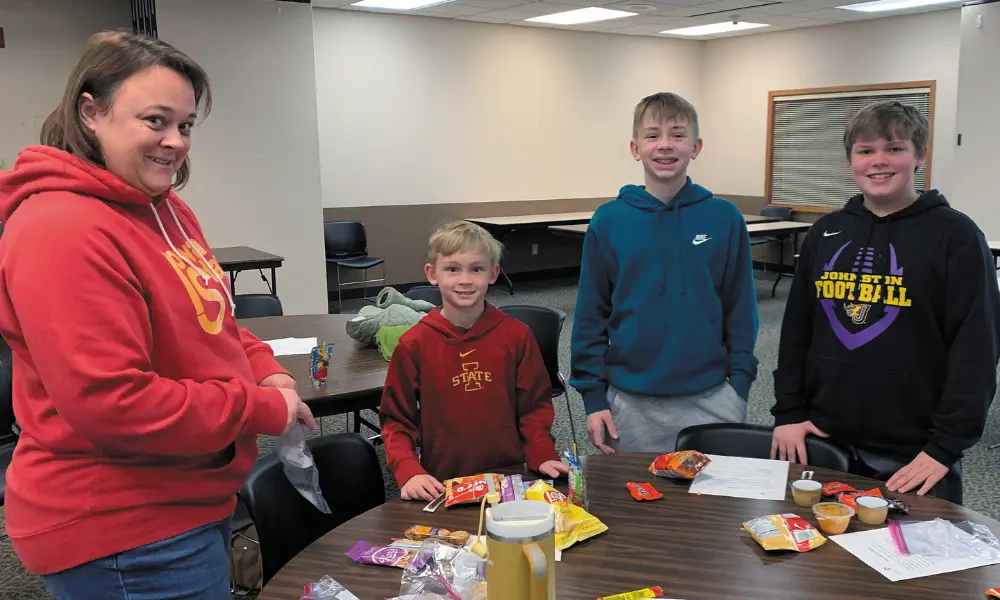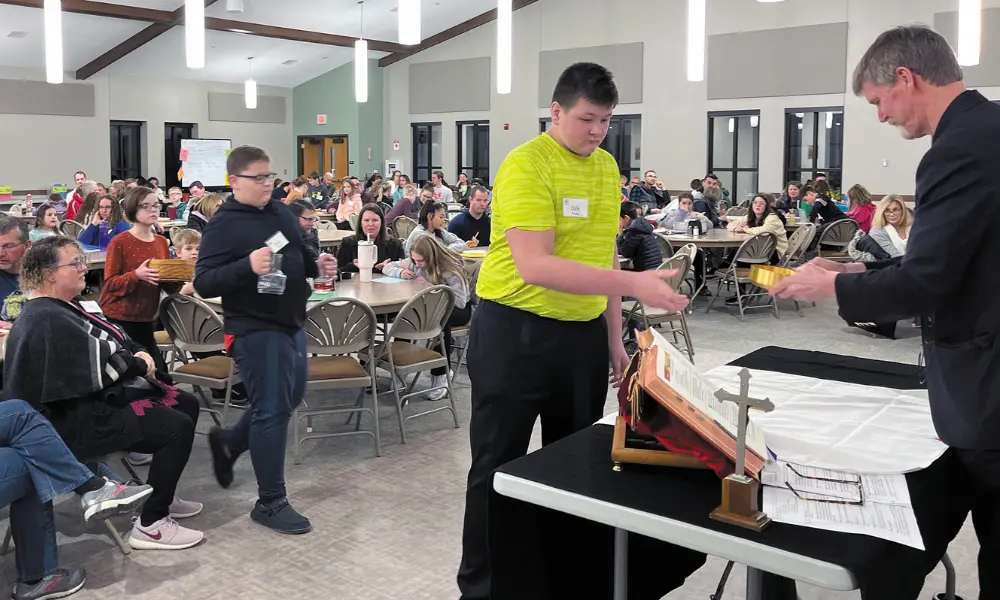Equipping parents to pass on the faith
October 21, 2024

By Jennifer Willems
Over the next three years, 20 dioceses across the country will be developing plans to engage and equip parents to be more confident in their roles as leaders of their “domestic church” – their family -- and the Diocese of Des Moines is one of them.
“Parents and Families at the Center of Faith Formation” is a project being piloted by the National Community of Catechetical Leaders, under the leadership of John Roberto, executive director. The project is made possible by a $1.25 million grant from the Lilly Endowment.
Eleven parishes across southwest Iowa have been invited to participate, according to John Gaffney, diocesan director of Evangelization and Mission. They are: St. Ambrose Cathedral, St. Catherine of Siena, St. Mary of Nazareth and St. Theresa in Des Moines; Ss. John and Paul in Altoona; Corpus Christi in Council Bluffs; Assumption in Granger; St. Patrick in Neola and St. Columbanus in Weston; St. John the Apostle in Norwalk; St. Mary in Red Oak; and Sacred Heart in West Des Moines.
The consultant provided by NCCL to work with the parishes and their coordinators is Kathie Amidei. She holds a doctoral degree in education and leadership, is an author, and a speaker on lifelong formation. A pastoral associate for a parish in Wisconsin, she formerly served as associate director for Catechesis and Child Ministry for the Archdiocese of Milwaukee.

Small group at a faith formation night in St. Mary of Nazareth in Des Moines.
Supporting what’s working
The goal is not to create a one-size-fits-all program, said Paulette Chapman, a longtime faith formation consultant from Urbandale, who is assisting Gaffney.
“What I think is really interesting and exciting about the way NCCL is approaching this is they’re starting from the standpoint of looking at what is happening in families -- how families are successfully transmitting faith and values, and then trying to build on that, to look to the strengths of families in our time, in our day,” said Chapman, who is also the NCCL consultant to the Diocese of Davenport and the Diocese of Springfield in Illinois.
Gaffney called it “the art of accompaniment.”
“How are we walking with our moms and dads? In some of our families it’s grandparents who are doing all of this. In some of them it’s foster families. All sorts of families, all sorts of shapes,” he explained. “How are we walking with them and then helping them really be the domestic church?”
Passing on the faith entails more than passing on knowledge, he emphasized.
“Having the faith come alive and be lived in a more vibrant way in our families -- I think that’s what really excited me with regards to this project,” Gaffney said.
Pope Francis has often stressed the importance of accompaniment, which was Jesus’ model, Chapman added.
“I think it’s a good model for all of us,” she said.

Faith formation night at Ss. John & Paul in Altoona
Sharing results in real time
Parishes were invited to participate in the project based on their experience with family faith formation or intergenerational faith formation, Gaffney said. Diversity was also key and is reflected in the rural, suburban and urban parishes on the list, as well as the large Hispanic communities or immigrant and refugee populations found among them.
Parish teams were formed over the summer, and meetings for the parish coordinators and Amidei are planned for this fall. The teams will begin by gathering information from the parents and bringing what they have learned to a workshop early in 2025.
A series of meetings will take place during the next three years as the parishes develop their own plans and share them with their parents and parish family. Chapman said assessing goals and tweaking them each year is vital to the success of the project.
Gaffney hopes that as the parish teams communicate the plan to parents, they will start to see and feel that they have a partner.
Just as 2024 has been a preparation year, 2028 will be devoted to evaluation.
“So it really gives us data and then we can, in real time, share that with colleagues across the Diocese,” Gaffney said. “The same thing with NCCL -- they can then share with the larger church what they’re discovering at every step of the way.”
Adjusting the model
Noting that those ministering in religious formation “stand on the shoulders of giants,” Gaffney said it may be time to “adjust the model” that has been used.
“We really have to, at some point, recognize that it’s going to be the parents that are going to be with the kids for a lifetime. So we really need to be focused on how we can better facilitate that,” Gaffney said.
“I hope that parents and caregivers will feel empowered to live out what they promised when their child was baptized, to raise them in the faith and be the primary catechist,” Chapman said. “That will come when those parents and caregivers either have their own awakening or deepening of their faith that hopefully will be part of the fruits of this project.”